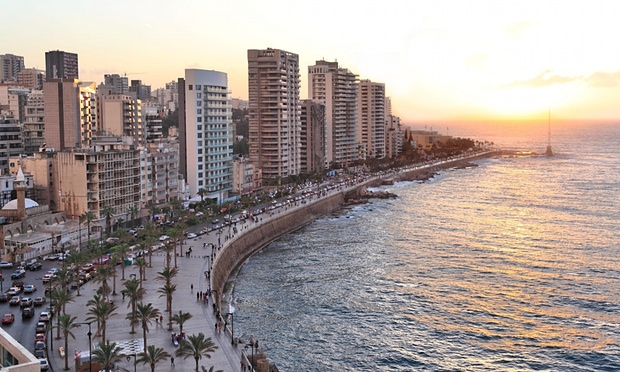
Interview by Emily Mathieson
The Guardian: Beirut has a mix of beauty, history and anarchy that can be deeply inspiring. The element of the unexpected, even chaos, leaves a lot of space for creative expression. The reason I live in Beirut is because of the inspiration it gives me as an artist and film-maker. It challenges me and makes me feel connected. I feel that I am living in history as it happens. Here, I feel I can leave a mark and make a difference.
Beirut is next to the sea. I can see the Med from my dining room window. It’s great to stroll along the Corniche [promenade], especially early in the morning, when the city is fresh and clean, but the sunset is nice, too. It’s the place to see all walks of society: fishermen, joggers, children on their bikes, people drinking coffee or playing backgammon. There are veiled women walking hand in hand with girls in mini skirts, as well as musicians and street artists.
My family moved to Lebanon when I was five. I’ve lived in many countries since, but Lebanon is the place I call home. Currently I live in Beirut with my husband, film-maker Jean Chamoun, and my two daughters, Nour and Hana.
I live in Ras Beirut [the head of Beirut], the most cosmopolitan part of the city. Historically, Beirut has provided a safe haven for political exiles escaping dictatorships in surrounding countries. It enjoys an unparalleled freedom of speech and a strong press and therefore attracts journalists, writers, artists, creative people, political activists – all kinds of people looking for adventure and inspiration.
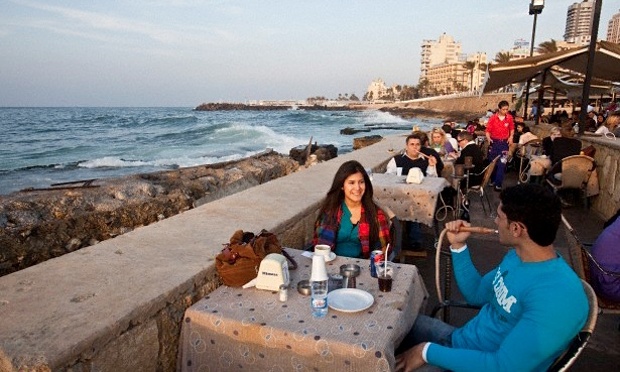
A young couple enjoy a sheesha at a seafront cafe. Photograph: Bryan Denton/Corbis
Beirut has changed a lot over the past few years. The war took its toll but now there’s systematic destruction of its heritage and architecture. It makes me sad and angry to see how the politicians are letting the city fall apart, failing to address the basic needs of the people (electricity, water, clean streets, parks and so on). Originally called Beroth, City of Wells by the Canaanite-Phoenicians, Beirut is an ancient settlement dating over 5,000 years. In the first century BC, it became a Roman city and was named Berytus. In the 1960s and early 70s, it was a great cultural centre and a major educational, medical and commercial hub in the Arab region. It suffered several setbacks during the 15-year civil war [1975-1990], but the people have worked hard to rebuild their shattered homes and lives.
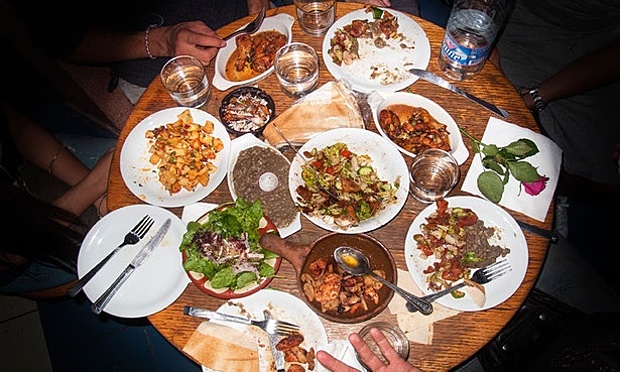
Lebanese meze. Photograph: Alamy
Lebanese cuisine is great, whatever your budget. Try a tasty falafel sandwich from an outdoor food stand or splash out on traditional mezze at a more upmarket restaurant, such as Mayyas or Em Sherif in Ashrafieh. Lebanese mezze comprises a delicious assortment of little dishes, such as tabbouleh and baba ghanoush, usually accompanied by the local anise drink, Arak.
Hamra Street and Mar Mikhael are vibrant areas with amazing cafes and restaurants. Skybar and B018 are popular with the trendy crowd, but I prefer to discover new places, such as converted warehouses and train stations with interesting bands. I enjoy live “ethnic” music – latin, African, Arabic, jazz.
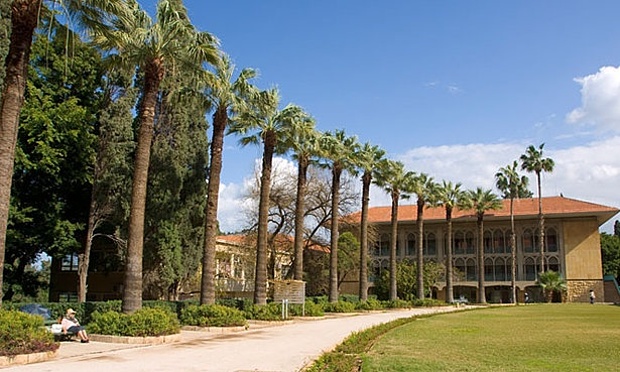
The American University campus in Beirut. Photograph: Alamy
When I need to escape I go to the American University campus. With its lush gardens and beautiful architecture, it is an oasis in a desert of concrete – the lungs of Beirut. I go there early in the morning to do my stretching, walk barefoot on the grass, meditate, look out to sea and feel the breeze on my face.
Saifi Urban Gardens in Gemmayzeh is a good place to stay. It’s in a “happening” area and it’s affordable (dorm rooms costs $18 a night B&B), with traditional decor and includes a wonderful little cafe, Em Nazih, an Arabic language school and a rooftop bar with live music.
One of the rooftop bars in Mar Mikhael, or a garden pub in Gemmayzeh, with live music, are my tips for places to go drinking.
I love the city’s diversity. In my building, there are Lebanese, Palestinians, westerners, Muslims (Sunni, Shia and Druze), and Christians. We’ve been through many good and bad times together. Our building was bombed and occupied several times. We celebrated the birth of each other’s children and stood together through illness and death. If we run out of bread or milk, we borrow from each other. When we get angry, we find a way to solve our problems.
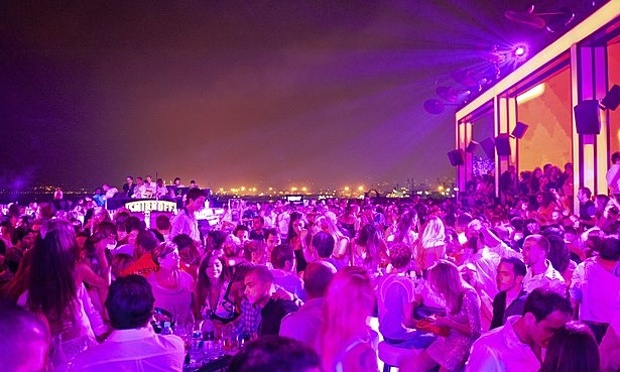
Crowds enjoy the drinks and view at Skybar. Photograph: Alamy
Beirut is a city that refuses to die. I love its energy and liveliness, the resilience of its people and their love of life. As a film-maker, I’ve seen this city at its best and worst times. While making films during the war, I was fascinated by the way ordinary people managed to hold on to their humanity and reconstruct their lives, despite the death and destruction around them.



